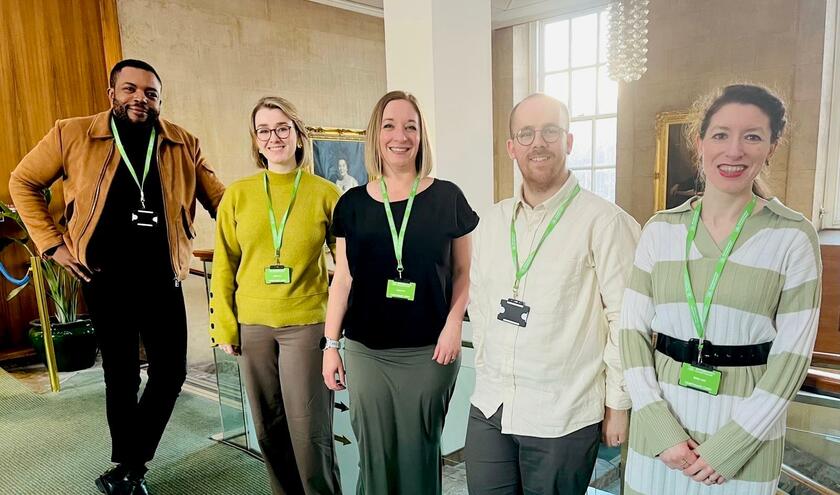Nottinghamshire, a county known for its rich history and natural beauty, has long captured the imagination. Home to Sherwood Forest, a dense and ancient woodland, and the river Trent that flows through the county, it is a place where the past meets the present. It was in this setting on a crisp morning in February, that the county council became the host of the second LG Challenge of 2025, welcoming the cohort of ambitious local government officers for an intense 24-hour challenge.
The challenge posed to the LG Challenge cohort remained a mystery until their arrival at county hall, where as is customary, the topic was kept secret, heightening the anticipation as they were warmly welcomed by Cllr Sam Smith, leader and Adrian Smith, chief executive.
Team Ascend, led by Mike Campbell from Waltham Forest LBC, highlighted the council's progress with its health and wellbeing initiatives. They proposed an accelerator programme titled the Nottinghamshire Outstanding Work (NOW) Programme, which would integrate employment support into the core operations of the council. This programme, they argued, could significantly enhance the county's employment outcomes.
Derek Higton, director of place provided an overview of the Nottinghamshire Plan, that outlines a 10-year vision for a healthy, prosperous, and greener future for the county. However, Nottinghamshire like many councils face some challenges, including disparities in employment and economic activity rates. Long-term health conditions, disabilities, and mental health issues are notable barriers that prevent some residents from accessing good employment.
The history of Nottinghamshire is not just defined by legendary figures, but also by its communities in both rural areas and large towns. Today, Nottinghamshire blends its rich heritage with a dynamic, modern culture that encourages future generations to forge new paths through its renowned universities, and attracting significant investment in key infrastructure projects such as the STEP Fusion project and the establishment of the UK's only central Freeport, both designed to support economic development and employment opportunities for residents.
With this in mind, the question that arose for the cohort was how Nottinghamshire CC could meaningfully improve access to good employment, recognising that employment is a key building block for health. The council's goal being to prioritise good employment as a central focus of its work, with the aim of improving outcomes for all residents.
Over the course of 24 hours, the teams undertook a site visit and engaged in various meetings with internal teams and external system partners including the employment, public health and HR teams from Nottinghamshire CC, as well as colleagues from the Integrated Care Board, Individual Placement and Support and DWP. Through these meetings the cohort learned that the council is working to embed health and wellbeing across its entire organisational framework, both as a system leader and as an employer.
Meanwhile at the site visit in Brooke Farm, members of each team discovered a local enterprise that runs training programmes to support individuals with learning disabilities and autism in developing skills and confidence to gain employment and achieve independence. After a busy start to the challenge, both teams were brimming with ideas and it was soon time to start refining them into tangible plans that could be pitched to the council.
Team Visionaries, this time captained by Jess Finnin from Havering LBC, proposed a strategy with short, medium, and long-term impacts. They pitched the creation of strategic community hubs that would integrate mental health and employment support services. In the medium term, they recommended developing a Good Employment Charter that would start within Nottinghamshire CC and expand to its stakeholders. For the long term, they advocated for stronger regional partnerships to enhance collaboration.
Team Ascend, led by Mike Campbell from Waltham Forest LBC, highlighted the council's progress with its health and wellbeing initiatives. They proposed an accelerator programme titled the Nottinghamshire Outstanding Work (NOW) Programme, which would integrate employment support into the core operations of the council. This programme, they argued, could significantly enhance the county's employment outcomes.
The LG Challenge serves as a platform for providing valuable consultancy and fresh perspectives to the host councils and for Nottinghamshire CC, both teams delivered impressive proposals. However, there can only be one winning team and it was Ascend's strategic approach to integrating employment support into the council's core business that ultimately won the challenge.
As the midpoint of the 2025 programme approaches, the teams aim to continue to push the boundaries of local government innovation and impact.
Michael Barrett, Adviser – Leadership, Local Government Association


